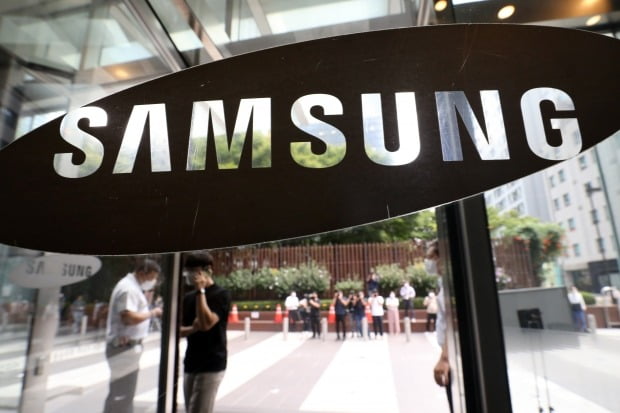
Samsung Electronics Co. has officially launched its new set division, which combines mobile and consumer electronics businesses into a single unit, as DX, short for device experience, underscoring its emphasis on the user experience of various Samsung products.
The top South Korean tech giant on Sunday also upscaled its task force on robotics projects to a business operation in a show of its focus on the promising business as one of its new growth drivers.
“With services and solutions that meet the needs of users as well as a wide range of products – from TVs and appliances to smartphones and network equipment – we will focus on providing leading experiences for customers,” the company said in a statement.
The DX division, headed by Vice Chairman and Co-CEO Han Jong-hee, comprises several Samsung businesses such as visual displays, digital appliances, health and medical equipment, network and mobile communications equipment, including smartphones.
On Friday, Samsung said it is changing the name of its mobile communications business to MX, short for mobile experience, in line with its pursuit of future-oriented technology.
The name change to MX, Samsung’s first renaming of the division in 26 years, shows the company’s renewed urgency to take on bigger rivals such as Apple Inc., leading the global trend toward the convergence of various technologies to provide multi-device experiences.
“By creating the Apple ecosystem, the US company has made users of its products such as the iPhone and the MacBook keep returning for more Apple goods. Similarly, Samsung wants to create the Samsung ecosystem. In that sense, user experience is one of its top priorities. That’s why it has added an X to its business names,” said an industry official.
DX, DS – TWO MAIN BUSINESS PILLARS
Samsung also said its recent business name changes underscore its commitment to proactively address the rapidly changing business environment and focus its products and services on meeting the diverse needs of its customers.
At the upcoming CES 2022 in Los Angeles, the company’s main exhibition theme will be to create new and meaningful experiences for customers, it said.
Last week, Samsung surprised the market by announcing that it is combining its mobile and consumer electronics businesses as a single unit, and replacing chief executives at its three major units in the company’s biggest leadership change in four years.
The newly-launched DX division will be one of Samsung’s two main business pillars, alongside the device solutions (DS) division, which includes its mainstay semiconductor business.
The DX division accounts for about 55%-60% of the company’s total sales, while the DS division takes up the rest.
Samsung’s revenue will likely be evenly divided between the two mainstay businesses once it completes its $17 billion new foundry plant in Taylor, Texas, and its fourth chip production line at its Pyeongtaek plant, according to industry officials.
ROBOTICS, A NEW GROWTH DRIVER
On Sunday, Samsung also made clear that it will foster robotics as one of its key business areas to drive its future growth by launching a new robotics business team.
“Samsung is soon expected to start the mass production of a series of Samsung robots such as the Samsung Bot Care, the Samsung Bot Serving and the Samsung Bot Handy,” said an industry source.
In June, Samsung said it aims to commercialize a wearable robot for healthcare by the end of this year at the earliest.
A Samsung official said that the wearable robot assists users who have trouble walking, running or standing up, and can also be used as a fitness device.
Samsung first unveiled the wearable robot, known as the gait enhancing and motivation system (GEMS), at the CES trade show in 2019. The company has also developed three variations of the wearable robot: the GEMS Hip, the GEMS Knee and the GEMS Ankle.
Samsung’s move to strengthen its robotics business is expected to intensify competition in the local robotics industry.
LG Electronics Inc. entered the robot market in 2018 by launching a series of robots that deliver food or make coffee under the Cloi brand.
The Hyundai Motor Group, which has the country’s two largest automakers Hyundai Motor Co. and Kia Corp. under its wing, is also aggressive with its robotics business.
In December 2020, the Korean automobile group acquired an 80% stake in Boston Dynamics Inc., a US robotics firm, from Japan’s SoftBank Group for $880 million.
Since the acquisition, Hyundai has been seeking ways to use robots in smart factories and last-mile product delivery, while applying the US firm’s technology to its autonomous driving and urban air mobility (UAM) projects.
Write to Shin-Young Park and Hyung-Suk Song at nyusos@hankyung.com
In-Soo Nam edited this article.
Credit: Source link

























